The Week in Freethought History (October 7-13)
Here’s your Week in Freethought History: This is more than just a calendar of events or mini-biographies – it’s a reminder that, no matter how isolated and alone we may feel at times, we as freethinkers are neither unique nor alone in the world.
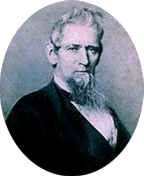 Last Sunday, October 7, but in 1865, U.S. businessman Ezra Cornell, and respected scholar Andrew Dickson White, chartered and founded the Ivy League University in Ithaca, New York, known as Cornell. “Uncle Ezra,” as he is affectionately known on campus, had a vision: “I would found an institution where any person can find instruction in any study.” Cornell students were admitted regardless of sex or religion: it was, by design, not affiliated with any religious organization. Co-founder and first college president Andrew Dickson White, an academic with a keen interest in, and scholarly credentials for investigating, the History of the Warfare of Science with Theology in Christendom, wrote a two-volume study on the question, published in 1895. It was Christian theology in the first place that dismantled the universal pagan education system under the old Roman Empire, then did so little during the thousand years of absolute Christian domination of Europe that more than ninety percent of the people in every Christian nation were illiterate and densely ignorant. Only now, when modern secular schools have raised the learning and prosperity of Western civilization, do churches want to take credit for having been supporters of education all along!
Last Sunday, October 7, but in 1865, U.S. businessman Ezra Cornell, and respected scholar Andrew Dickson White, chartered and founded the Ivy League University in Ithaca, New York, known as Cornell. “Uncle Ezra,” as he is affectionately known on campus, had a vision: “I would found an institution where any person can find instruction in any study.” Cornell students were admitted regardless of sex or religion: it was, by design, not affiliated with any religious organization. Co-founder and first college president Andrew Dickson White, an academic with a keen interest in, and scholarly credentials for investigating, the History of the Warfare of Science with Theology in Christendom, wrote a two-volume study on the question, published in 1895. It was Christian theology in the first place that dismantled the universal pagan education system under the old Roman Empire, then did so little during the thousand years of absolute Christian domination of Europe that more than ninety percent of the people in every Christian nation were illiterate and densely ignorant. Only now, when modern secular schools have raised the learning and prosperity of Western civilization, do churches want to take credit for having been supporters of education all along!
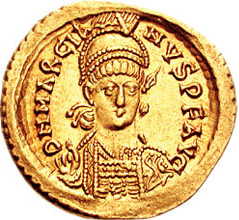 Last Monday, October 8, but in 451, the fourth of the first seven Ecumenical Councils in Christianity, the Council of Chalcedon opened. Convoked by Byzantine Emperor Marcian, at the urging of Pope Leo I, over 24 days of sessions the 500 bishops and 130 bishop's representatives cranked out 28 canons or statements of church doctrine. Here is how Robert Ingersoll satirized it in an 1881 lecture called "Great Infidels":
Last Monday, October 8, but in 451, the fourth of the first seven Ecumenical Councils in Christianity, the Council of Chalcedon opened. Convoked by Byzantine Emperor Marcian, at the urging of Pope Leo I, over 24 days of sessions the 500 bishops and 130 bishop's representatives cranked out 28 canons or statements of church doctrine. Here is how Robert Ingersoll satirized it in an 1881 lecture called "Great Infidels":
Theodosius called a council at Constantinople in 381, and this council decided that the Holy Ghost proceeded from the Father. Theodosius, the younger, assembled another council at Ephesus to ascertain who the Virgin Mary really was, and it was solemnly decided in the year 431 that she was the Mother of God. In 451 it was decided by a council held at Chalcedon… that Christ had two natures – the human and divine. In 680, in another general council, held at Constantinople, convened by order of Pognatius, it was also decided that Christ had two wills, and in the year 1274 it was decided at the Council of Lyons, that the Holy Ghost proceeded not only from the Father, but from the Son as well. Had it not been for these councils, we might have been without a Trinity even unto this day. When we take into consideration the fact that a belief in the Trinity is absolutely essential to salvation, how unfortunate it was for the world that this doctrine was not established until the year 1274. Think of the millions that dropped into hell while these questions were being discussed!
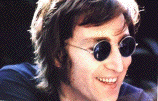 Last Tuesday, October 9, but in 1940, English musician, and founding member of The Beatles, John Lennon was born. Having gotten together with songwriting collaborator Paul McCartney, who introduced Lennon to George Harrison, and a drummer to be named later (Ringo Starr), Lennon was always the instigator and experimenter in the Beatles. He gave the group its name, spelled with an A), got the gang to try drugs and Eastern mysticism, and wrote the more "spiritual" of their lyrics. In 1966 The Evening Standard published an interview in which Lennon said, “Christianity will go. It will vanish and shrink... We're more popular than Jesus now...” The reaction to this blasphemy was predictably intemperate. But 25-year-old Lennon survived the outrage. Lennon was not an atheist; instead, he embraced a vague spirituality. His mature lyrics demonstrate this clearly. In a 1970 song called "God," Lennon wrote, “God is a concept / By which we measure / Our pain.” And, in the title song for his 1971 album, Imagine, Lennon wrote, “Imagine there's no heaven / It's easy if you try / No hell below us / Above us only sky… Imagine there's no countries / It isn't hard to do / Nothing to kill or die for / And no religion too.”
Last Tuesday, October 9, but in 1940, English musician, and founding member of The Beatles, John Lennon was born. Having gotten together with songwriting collaborator Paul McCartney, who introduced Lennon to George Harrison, and a drummer to be named later (Ringo Starr), Lennon was always the instigator and experimenter in the Beatles. He gave the group its name, spelled with an A), got the gang to try drugs and Eastern mysticism, and wrote the more "spiritual" of their lyrics. In 1966 The Evening Standard published an interview in which Lennon said, “Christianity will go. It will vanish and shrink... We're more popular than Jesus now...” The reaction to this blasphemy was predictably intemperate. But 25-year-old Lennon survived the outrage. Lennon was not an atheist; instead, he embraced a vague spirituality. His mature lyrics demonstrate this clearly. In a 1970 song called "God," Lennon wrote, “God is a concept / By which we measure / Our pain.” And, in the title song for his 1971 album, Imagine, Lennon wrote, “Imagine there's no heaven / It's easy if you try / No hell below us / Above us only sky… Imagine there's no countries / It isn't hard to do / Nothing to kill or die for / And no religion too.”
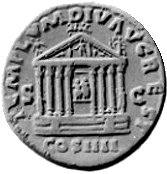 It was on this date, October 9, 28 BCE, that the Temple of Apollo was dedicated on the Palatine Hill in Rome. The "Apollo Palatínus" was built by Emperor Augustus and contained a library. That this magnificent temple no longer exists – it was torched by Christian fundamentalists in March 363 – is a tragedy to art and to scholarship, but also characteristic of the Christian attitude toward non-Christian culture. Suffice it to say that the Muslim attitude toward non-Muslim culture, as evidenced by the Taliban's destruction of Buddhist statuary in Afghanistan in February 2001, shows a similar attitude. That the Christianity of fourth-century Rome laid the foundation for the glories of Western civilization, taught morals to the pagans, ended slavery, spread education and built hospitals, are the chief claims of apologists for the new religion. And every claim is historically false. The pagan temples had been looted of their artistic and literary treasures, and closed, between 380 and 390. Necessary, perhaps, in order to stamp out competition, but that's where the pagans housed their hospitals. And pagan education was forbidden, even though the Christians had no replacement for it. Consequently, the Romans, who had been about 90 percent literate at this point, became at least 90 percent illiterate as the pagan school system collapsed. So even if Apollo, God of the sun, was crushed by God and his Son, it was always a conquest, never a conversion.
It was on this date, October 9, 28 BCE, that the Temple of Apollo was dedicated on the Palatine Hill in Rome. The "Apollo Palatínus" was built by Emperor Augustus and contained a library. That this magnificent temple no longer exists – it was torched by Christian fundamentalists in March 363 – is a tragedy to art and to scholarship, but also characteristic of the Christian attitude toward non-Christian culture. Suffice it to say that the Muslim attitude toward non-Muslim culture, as evidenced by the Taliban's destruction of Buddhist statuary in Afghanistan in February 2001, shows a similar attitude. That the Christianity of fourth-century Rome laid the foundation for the glories of Western civilization, taught morals to the pagans, ended slavery, spread education and built hospitals, are the chief claims of apologists for the new religion. And every claim is historically false. The pagan temples had been looted of their artistic and literary treasures, and closed, between 380 and 390. Necessary, perhaps, in order to stamp out competition, but that's where the pagans housed their hospitals. And pagan education was forbidden, even though the Christians had no replacement for it. Consequently, the Romans, who had been about 90 percent literate at this point, became at least 90 percent illiterate as the pagan school system collapsed. So even if Apollo, God of the sun, was crushed by God and his Son, it was always a conquest, never a conversion.
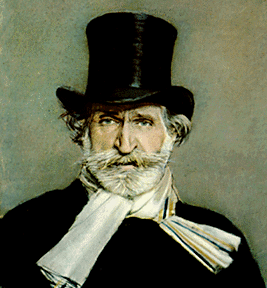 Last Wednesday, October 10, but in 1813, Italian opera composer Giuseppe Verdi was born. An exact contemporary of Richard Wagner, Verdi dominated the Italian musical scene for 50 years with his 28 operas, including Nabucco, Macbeth, Rigoletto, Il Trovatore, La Traviata, Les Vêpres Siciliennes, Simon Boccanegra, Un Ballo in Maschera, La Forza del Destino, Don Carlos, Aïda, Otello and Falstaff. Although he is claimed by the Catholic Encyclopedia, in fact, Verdi was a notorious apostate and called himself an Agnostic. He angered the clergy with the anti-Catholic notes in his 1855 Sicilian Vespers. It is as superficial to claim someone must be a believer, solely on the basis of having composed religious works, as it is to claim that a crime novelist must be a criminal. Furthermore, you would be hard-pressed to find more “inspiration” in Verdi’s sacred works than in his secular works.
Last Wednesday, October 10, but in 1813, Italian opera composer Giuseppe Verdi was born. An exact contemporary of Richard Wagner, Verdi dominated the Italian musical scene for 50 years with his 28 operas, including Nabucco, Macbeth, Rigoletto, Il Trovatore, La Traviata, Les Vêpres Siciliennes, Simon Boccanegra, Un Ballo in Maschera, La Forza del Destino, Don Carlos, Aïda, Otello and Falstaff. Although he is claimed by the Catholic Encyclopedia, in fact, Verdi was a notorious apostate and called himself an Agnostic. He angered the clergy with the anti-Catholic notes in his 1855 Sicilian Vespers. It is as superficial to claim someone must be a believer, solely on the basis of having composed religious works, as it is to claim that a crime novelist must be a criminal. Furthermore, you would be hard-pressed to find more “inspiration” in Verdi’s sacred works than in his secular works.
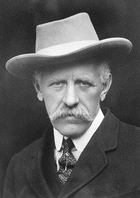 Also last Wednesday, October 10, but in 1861, Norwegian explorer Fridtjof Nansen was born. He entered the University of Christiania in 1880 and studied zoology, taking an "internship" aboard the sealer Viking, giving Nansen his first experience of the Arctic and sealing his future interests. Nansen became Curator of the Museum of Comparative Anatomy at Christiania University, professor of geology and professor of oceanography there, as well as Norwegian Minister in London (1906-1908). He was also a distinguished humanitarian, promoting the League of Nations and helping in the repatriation of prisoners of war following World War One, as well as relief efforts during the Russian famine from 1921-1923 and during the Greco-Turkish war in 1922. Nansen was awarded the Nobel Peace Prize in 1922, the proceeds of which he redirected to famine relief. Like his countryman, the poet and writer Bjørnstjerne Bjørnson, Fridtjof Nansen was an Agnostic, once saying, “the religion of one age is, as a rule, the literary entertainment of the next.”
Also last Wednesday, October 10, but in 1861, Norwegian explorer Fridtjof Nansen was born. He entered the University of Christiania in 1880 and studied zoology, taking an "internship" aboard the sealer Viking, giving Nansen his first experience of the Arctic and sealing his future interests. Nansen became Curator of the Museum of Comparative Anatomy at Christiania University, professor of geology and professor of oceanography there, as well as Norwegian Minister in London (1906-1908). He was also a distinguished humanitarian, promoting the League of Nations and helping in the repatriation of prisoners of war following World War One, as well as relief efforts during the Russian famine from 1921-1923 and during the Greco-Turkish war in 1922. Nansen was awarded the Nobel Peace Prize in 1922, the proceeds of which he redirected to famine relief. Like his countryman, the poet and writer Bjørnstjerne Bjørnson, Fridtjof Nansen was an Agnostic, once saying, “the religion of one age is, as a rule, the literary entertainment of the next.”
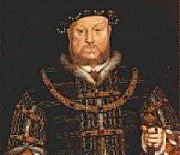 It was on this date, October 11, 1521, that Pope Leo X conferred the title Fidei Defensor, which is Latin for "Defender of the Faith," on England's King Henry VIII. That Medici pope, whose profligate spending and perverse pleasures were the outrage of Rome, was a staunch opponent of any kind of reform or dissent from doctrine. As he condemned Martin Luther in 1520, Leo was pleased to find an ally in the English monarch, who, with the help of Sir Thomas More, wrote a Declaration of the Seven Sacraments Against Martin Luther) to Leo’s great pleasure. To this day, "Defender of the Faith" forms part of the English monarch's titles. But Leo was dead within two months, so he never saw what trouble Henry later caused the church he had defended so nimbly. Catholics have worked hard to create an image of Henry as a lustful, sensual and vulgar king, and the popular media, never notable for critical thinking, have done their best to play along. It is true that after his accession he occupied himself with naval affairs and sporting events, but he was well educated and even composed creditable music: there is every reason to believe Henry wrote most of his Declaration of the Seven Sacraments himself. As for Henry's personal beliefs, it is fair to say that he was at least publicly pious, as was his daughter (by Anne Boleyn), Elizabeth. But like his daughter, and many of the popes of the time, he never let his personal piety trump his politics. Henry had a healthy skepticism toward Catholic doctrine. The Encyclopædia Britannica says that his mind was "intensely secular," and he was "as devoid of moral sense as he was of genuine religious sentiments." For those who would conclude that Henry's skepticism lead to his moral degradation, you might reflect that he was no better and no worse than his contemporaries – and unlike the corrupt popes with whom he dealt, Henry did not presume to represent God on earth!
It was on this date, October 11, 1521, that Pope Leo X conferred the title Fidei Defensor, which is Latin for "Defender of the Faith," on England's King Henry VIII. That Medici pope, whose profligate spending and perverse pleasures were the outrage of Rome, was a staunch opponent of any kind of reform or dissent from doctrine. As he condemned Martin Luther in 1520, Leo was pleased to find an ally in the English monarch, who, with the help of Sir Thomas More, wrote a Declaration of the Seven Sacraments Against Martin Luther) to Leo’s great pleasure. To this day, "Defender of the Faith" forms part of the English monarch's titles. But Leo was dead within two months, so he never saw what trouble Henry later caused the church he had defended so nimbly. Catholics have worked hard to create an image of Henry as a lustful, sensual and vulgar king, and the popular media, never notable for critical thinking, have done their best to play along. It is true that after his accession he occupied himself with naval affairs and sporting events, but he was well educated and even composed creditable music: there is every reason to believe Henry wrote most of his Declaration of the Seven Sacraments himself. As for Henry's personal beliefs, it is fair to say that he was at least publicly pious, as was his daughter (by Anne Boleyn), Elizabeth. But like his daughter, and many of the popes of the time, he never let his personal piety trump his politics. Henry had a healthy skepticism toward Catholic doctrine. The Encyclopædia Britannica says that his mind was "intensely secular," and he was "as devoid of moral sense as he was of genuine religious sentiments." For those who would conclude that Henry's skepticism lead to his moral degradation, you might reflect that he was no better and no worse than his contemporaries – and unlike the corrupt popes with whom he dealt, Henry did not presume to represent God on earth!
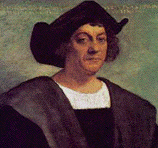 Yesterday, Friday, October 12, but in 1492, Christopher Columbus arrived in the Americas from Spain. The Italian-born explorer was reared a Roman Catholic. After being rebuffed by Portugal, England and France, Columbus learned what buttons to press to get the attention of the very Catholic monarchs of Spain, who were busy cleansing the countryside of Jews and Moors. An essay collection called Ymago Mundi by French Cardinal Pierre D'Ailly, who died in 1420, supplied Columbus with solid theology to argue that the ocean passage from west to east could not be as long as previously thought. Columbus was right, but for the wrong reason: there was an undiscovered continent in his path and that happy accident led to four voyages that opened up riches and real estate to his Spanish sponsors. But the natives did not take well to being Christianized, did not make good slaves, and because their germs were not as robust as his, they succumbed in great numbers to the more virulent diseases of their conquerors. In spite of the bad spread to the New World, Columbus inadvertently spread Western thinking: empiricism, science, individualism. Columbus attempted to sow Christianity, but eventually reaped Enlightenment skepticism. And that can only be good!
Yesterday, Friday, October 12, but in 1492, Christopher Columbus arrived in the Americas from Spain. The Italian-born explorer was reared a Roman Catholic. After being rebuffed by Portugal, England and France, Columbus learned what buttons to press to get the attention of the very Catholic monarchs of Spain, who were busy cleansing the countryside of Jews and Moors. An essay collection called Ymago Mundi by French Cardinal Pierre D'Ailly, who died in 1420, supplied Columbus with solid theology to argue that the ocean passage from west to east could not be as long as previously thought. Columbus was right, but for the wrong reason: there was an undiscovered continent in his path and that happy accident led to four voyages that opened up riches and real estate to his Spanish sponsors. But the natives did not take well to being Christianized, did not make good slaves, and because their germs were not as robust as his, they succumbed in great numbers to the more virulent diseases of their conquerors. In spite of the bad spread to the New World, Columbus inadvertently spread Western thinking: empiricism, science, individualism. Columbus attempted to sow Christianity, but eventually reaped Enlightenment skepticism. And that can only be good!
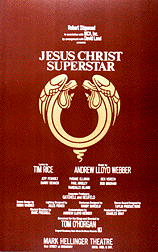 Also yesterday, October 12, but in 1971, the rock musical Jesus Christ Superstar opened on Broadway. Composer Andrew Lloyd Webber and lyricist Tim Rice were hardly household names at the time – they initially couldn't get backing to put up a show, so they raised money by recording an "original cast" album first. The plan worked: the album made money, and the show wowed critics. From album to stage to silver screen, the property polished the coined term "rock opera" (to which opera fanatics objected) and captured the imaginations of a rebellious younger generation, to which tradition-minded parents objected. But it wasn't pure calculation that earned Jesus Christ Superstar its enduring popularity. In fact, Jesus Christ Superstar doesn't so much convert you as seduce you. Who among us can't relate to wearying of responsibility and just letting go, as in the song “Everything's Alright” sung by Mary Magdalene? Who among us can't relate to seeing a friend heading down a dangerous path, and wanting to save him from himself, as in the song “Heaven on Their Minds” sung by Judas Iscariot? Who among us hasn't been in love with someone unreachable, as in another song sung by Mary Magdalene, “I Don't Know How to Love Him”? And, finally, who among us as Freethinkers hasn't expressed a slightly sarcastic skepticism toward an obvious charlatan, as in “King Herod's Song”?
Also yesterday, October 12, but in 1971, the rock musical Jesus Christ Superstar opened on Broadway. Composer Andrew Lloyd Webber and lyricist Tim Rice were hardly household names at the time – they initially couldn't get backing to put up a show, so they raised money by recording an "original cast" album first. The plan worked: the album made money, and the show wowed critics. From album to stage to silver screen, the property polished the coined term "rock opera" (to which opera fanatics objected) and captured the imaginations of a rebellious younger generation, to which tradition-minded parents objected. But it wasn't pure calculation that earned Jesus Christ Superstar its enduring popularity. In fact, Jesus Christ Superstar doesn't so much convert you as seduce you. Who among us can't relate to wearying of responsibility and just letting go, as in the song “Everything's Alright” sung by Mary Magdalene? Who among us can't relate to seeing a friend heading down a dangerous path, and wanting to save him from himself, as in the song “Heaven on Their Minds” sung by Judas Iscariot? Who among us hasn't been in love with someone unreachable, as in another song sung by Mary Magdalene, “I Don't Know How to Love Him”? And, finally, who among us as Freethinkers hasn't expressed a slightly sarcastic skepticism toward an obvious charlatan, as in “King Herod's Song”?
So if you are the Christ
Yes the great Jesus Christ
Prove to me that you're no fool
Walk across my swimming pool
There are no miracles and there is no resurrection, the two least believable parts of the Jesus myth. So, unlike Godspell, Jesus Christ Superstar doesn't try to convert you by scaring you with eternal punishment. Instead, even if you don't have heaven on your mind, you won't mind the music.
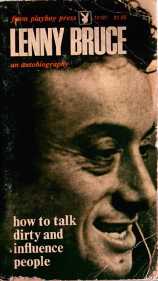 Today, October 13, but in 1925, American comedian Lenny Bruce was born. Bruce grew up a tough Jewish kid who expressed his ethnicity with humor. He came to prominence in the 1950s and 1960s with his edgy, penetrating satire on taboo subjects such as racial fears, sexual fantasies, and, of course, religion. “If Jesus had been killed twenty years ago,” said Bruce, “Catholic school children would be wearing little electric chairs around their necks instead of crosses.” In a 1961 routine called “Christ and Moses,” an agitated Bishop Sheehan tells Cardinal Spellman about the unexpected appearance of Christ and Moses in New York. What to do about them? Today Bruce is considered a martyr to free speech. Bruce's autobiography, suggested by supporter and Playboy publisher Hugh Hefner, and called How to Talk Dirty and Influence People (1965), inspired a play and a 1974 film. It was an Agnostic Lenny Bruce who said, “Every day, people are straying away from the church and going back to God.”
Today, October 13, but in 1925, American comedian Lenny Bruce was born. Bruce grew up a tough Jewish kid who expressed his ethnicity with humor. He came to prominence in the 1950s and 1960s with his edgy, penetrating satire on taboo subjects such as racial fears, sexual fantasies, and, of course, religion. “If Jesus had been killed twenty years ago,” said Bruce, “Catholic school children would be wearing little electric chairs around their necks instead of crosses.” In a 1961 routine called “Christ and Moses,” an agitated Bishop Sheehan tells Cardinal Spellman about the unexpected appearance of Christ and Moses in New York. What to do about them? Today Bruce is considered a martyr to free speech. Bruce's autobiography, suggested by supporter and Playboy publisher Hugh Hefner, and called How to Talk Dirty and Influence People (1965), inspired a play and a 1974 film. It was an Agnostic Lenny Bruce who said, “Every day, people are straying away from the church and going back to God.”
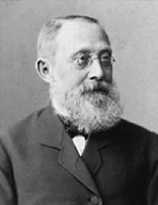 Also today, October 13, but in 1821, German pathologist, anthropologist and politician, Rudolf Virchow, was born. Virchow was one of the keenest minds in 19th century medicine in Europe, the founder of the science of cellular pathology – the theory that disease arises in cells rather than in the organs. As professor of pathology at Berlin University, he was removed for supporting the revolution of 1848, but due to his scientific reputation Virchow was asked to return in 1856. “The task of science,” he said, “is to stake out the limits of the knowable, and to center consciousness within them.” It was in that very speech, “The Task of Science,” that Virchow declared his agnosticism, rejecting all religion. As a politician, he led the Freethinking Liberals for some years in the Reichstag. “Medical education does not exist to provide students with a way of making a living,” he said, “but to ensure the health of the community.” Ironically, anti-evolution Christians list him as an ally – he opposed evolution because he feared it led to Socialism – even though Virchow attacked the churches all his life. Up until his death in 1902, Virchow worked for the physical betterment of communities and lives.
Also today, October 13, but in 1821, German pathologist, anthropologist and politician, Rudolf Virchow, was born. Virchow was one of the keenest minds in 19th century medicine in Europe, the founder of the science of cellular pathology – the theory that disease arises in cells rather than in the organs. As professor of pathology at Berlin University, he was removed for supporting the revolution of 1848, but due to his scientific reputation Virchow was asked to return in 1856. “The task of science,” he said, “is to stake out the limits of the knowable, and to center consciousness within them.” It was in that very speech, “The Task of Science,” that Virchow declared his agnosticism, rejecting all religion. As a politician, he led the Freethinking Liberals for some years in the Reichstag. “Medical education does not exist to provide students with a way of making a living,” he said, “but to ensure the health of the community.” Ironically, anti-evolution Christians list him as an ally – he opposed evolution because he feared it led to Socialism – even though Virchow attacked the churches all his life. Up until his death in 1902, Virchow worked for the physical betterment of communities and lives.
We can look back, but the Golden Age of Freethought is now. You can find full versions of these pages in Freethought history at the links in my blog, FreethoughtAlmanac.com.

